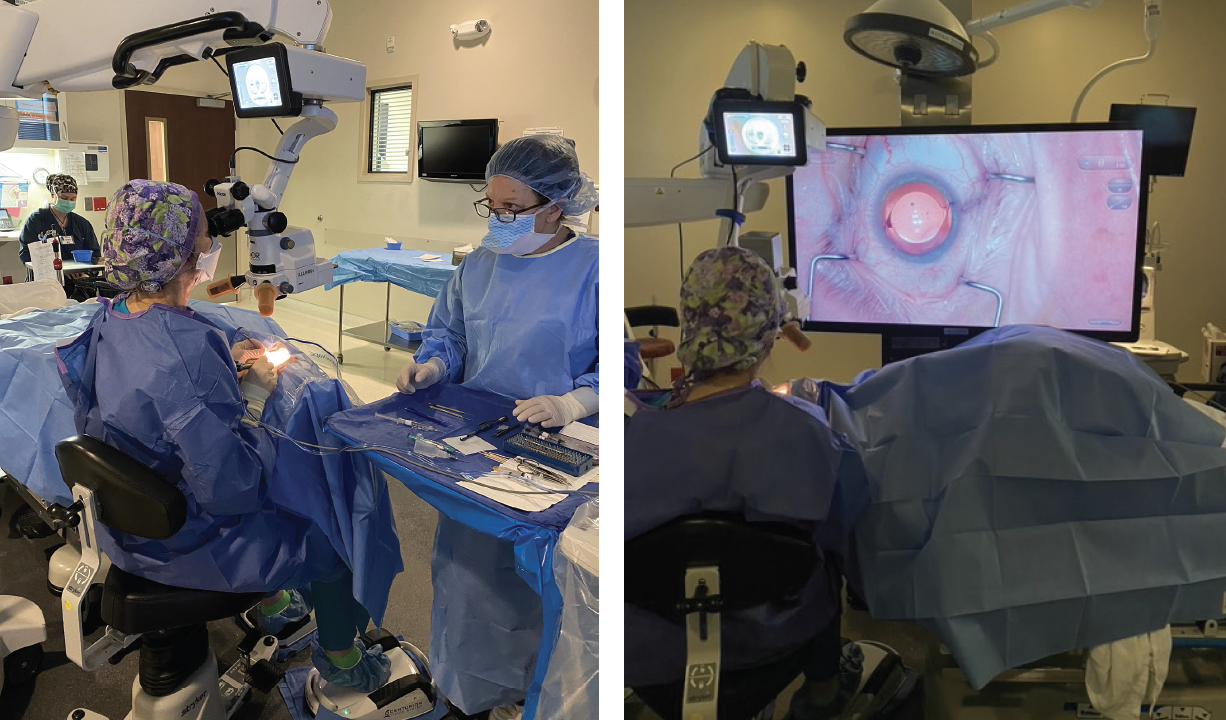
Members of the ophthalmology community joined forces over the past year to educate policymakers and the media about the impact of Aetna’s overreaching mandate requiring prior authorization for all cataract surgeries regardless of the patient’s status and the surgeon’s medical decision-making. Prior authorization can be reasonable in some instances. When insurers apply it to safe, common, and effective procedures like cataract surgery, however, a prior authorization requirement can delay care and be dangerous to a patient’s health.
My colleagues and I worked in good faith with Aetna to repeal the prior authorization requirement. We requested changes in the policy such as the following:
- Using generally accepted criteria for medically necessary cataract surgery;
- Recognizing that some patients need bilateral cataract surgery so that the submission of two prior authorization forms is not required for them;
- Adjusting the internal peer-to-peer review of cases to include ophthalmologists; and
- Addressing portal glitches that can delay reporting processes.
COUNTERING BUREAUCRACY WITH FACTs
Physician reports. The response from physicians to Aetna’s prior authorization requirement for cataract surgery was overwhelming, and it strengthened efforts to influence the insurer to change its decision. Doctors reported on the mandate’s detrimental impact on patient care and the administrative burden it placed on their practices. The detailed documentation demonstrated, for example, how denying patients access to cataract surgery put them at increased risk of motor vehicle accidents due to disabling glare at nighttime and falls due to reduced depth perception.
A case in point. The experience of one of my patients illustrates the harmful effects of Aetna’s prior authorization requirement and was featured in a local news broadcast story that aired on November 30, 2021.1 The patient had been approved for and undergone cataract surgery on his left eye. The night before he was to undergo cataract surgery on his right eye, Aetna denied coverage by declaring that he was “not ready” for cataract surgery on the second eye.
The patient’s preparations for surgery were disrupted. The insurer’s decision was based not on his health status and needs but on national data that Aetna said it had accumulated—but never made available—on the percentage of unnecessary cataract procedures performed by ophthalmologists.
My staff spent hours appealing to Aetna for approval of cataract surgery on the patient’s second eye in November 2021. The procedure was eventually sanctioned, but the insurer still has not paid for the surgery.
REGULATORY AND LEGAL SCRUTINY
Prior authorization policies—both Aetna’s and those of other big insurers—have caught the attention of the US Congress and the US Department of Health and Human Services’ Office of Inspector General (OIG). Earlier this year, the OIG reported on its analysis of denials of prior authorization requests made by Medicare Advantage Organizations. According to the OIG report, these services likely would have been approved for most beneficiaries under Medicare.2
A congressional hearing by the House Committee on Energy and Commerce, held in June, focused on the quality of coverage offered by Medicare Advantage plans. Committee members questioned witnesses about the prior authorization practices of insurers offering Medicare Advantage plans and the impact of those practices on patient care.3
The AAO has advocated for heightened scrutiny from lawmakers and regulators. There have been several indications that federal lawmakers are ready to advance commonsense reform. Legislation was introduced in the US House of Representatives (HR 3173) and US Senate (S 3018) to establish several requirements and standards relating to prior authorization processes under Medicare Advantage plans.4,5 The Improving Seniors’ Timely Access to Care Act of 2021 would, among other things, require these plans to establish an electronic prior authorization program and enable real-time decisions in response to requests for services that are routinely approved (Figure).

Figure. Dr Epitropoulos performs cataract surgery, one of the most common and successful medical procedures in the United States. The procedure has been shown to reduce the risk of falls and motor vehicle accidents in those with visually significant cataracts.
CONCLUSION
As mentioned earlier, Aetna has never produced the data it claimed indicated that unnecessary cataract procedures were being performed and that the undisclosed data was the catalyst for its sweeping prior authorization mandate.
The insurer eventually withdrew the requirement—except in Georgia and Florida—and has recently approved a high number of cataract surgeries. The reason for the exceptions remains unstated, but the reversal is otherwise a victory that prioritizes medical care over profit.
In this situation, fact-based, organized advocacy prevailed.
1. Biviano D. Aetna’s ‘prior authorization’ policy a concern for some doctors, patients. Spectrum News 1. November 30, 2021. Accessed August 25, 2022. https://spectrumnews1.com/oh/columbus/news/2021/11/18/aetna-insurance
2. US Department of Health and Human Services Office of Inspector General. Some Medicare Advantage Organization denials of prior authorization requests raise concerns about beneficiary access to medically necessary care. April 27, 2022. Accessed July 29, 2022. https://oig.hhs.gov/oei/reports/OEI-09-18-00260.asp
3. E&C announces Medicare Advantage oversight hearing. Press release. House Committee on Energy & Commerce. June 21, 2022. Accessed August 1, 2022. https://energycommerce.house.gov/newsroom/press-releases/ec-announces-medicare-advantage-oversight-hearing
4. Improving Seniors’ Timely Access to Care Act of 2021, HR 3173, 117th Cong (2021-2022). Accessed August 1, 2022. https://www.congress.gov/bill/117th-congress/house-bill/3173
5. Improving Seniors’ Timely Access to Care Act of 2021, S 3018, 117th Cong (2021-2022). Accessed August 1, 2022. https://www.congress.gov/bill/117th-congress/senate-bill/3018




